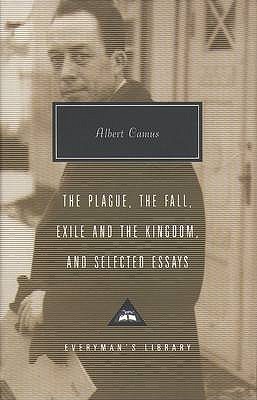
The Plague, The Fall, Exile and The Kingdom and Selected Essays
Book Description
A relentless plague sweeps through a city, testing the limits of humanity, while existential dilemmas unfold against the backdrop of despair and hope. In "The Plague, The Fall, Exile and The Kingdom and Selected Essays," Albert Camus brilliantly entwines stories of moral turmoil and profound reflection, exploring the human condition when faced with chaos. Lives intersect in moments of intense choices and ethical conflicts, raising haunting questions about freedom, responsibility, and the quest for meaning. What do we discover about ourselves when the world unravels? Experience the gripping journey and confront the truth lurking in the shadows.
Quick Book Summary
"The Plague, The Fall, Exile and The Kingdom and Selected Essays" brings together some of Albert Camus’s most compelling works, unified by their exploration of the human condition in the face of adversity, isolation, and existential crisis. In these pages, Camus examines humanity’s response to suffering, the quest for justice, and the struggle to find meaning in a seemingly indifferent universe. "The Plague" recounts the ordeal of a city ravaged by disease, prompting ordinary people to acts of courage and introspection. "The Fall" features an introspective monologue probing guilt and confession in a morally ambiguous world, while stories in "Exile and the Kingdom" delve into the alienation of individuals and their search for belonging. Camus’s essays distill his philosophical stance on absurdism and resistance, urging readers to face life’s uncertainties with honesty and resolve.
Summary of Key Ideas
Table of Contents
Human Solidarity and Resistance to Suffering
In "The Plague," Camus depicts the city of Oran suddenly struck by a relentless epidemic. Through its isolated inhabitants – doctors, priests, journalists, civil servants – he explores themes of suffering, randomness, and human solidarity. Unlike classic tales of heroism, the plague’s victims and caretakers fight not for glory but simply to alleviate others’ pain and maintain dignity. The novel interrogates humanity’s capacity to resist suffering not through faith in redemption, but through persistent collective action and compassion in an indifferent world.
The Search for Meaning in an Absurd World
"The Fall" shifts to a confessional narrative set in Amsterdam, following Jean-Baptiste Clamence, a former Parisian lawyer. As Clamence reflects on his life, he exposes the moral ambiguity lurking beneath apparent virtue. His journey charts the roots of guilt, self-deception, and forced confession, inviting readers to question the legality and authenticity of ethical action. The story subtly articulates Camus’s fascination with judgment, hypocrisy, and the loneliness endemic to human conscience.
Guilt, Responsibility, and the Ethics of Action
"Exile and the Kingdom" is a collection of six short stories that center on individuals facing estrangement—both from their environments and from other people. Characters grapple with their sense of exile, whether physical, emotional, or existential, and seek connection or meaning against the backdrop of alienation. Through vivid imagery of sunlit landscapes and sparse settings, Camus highlights the universal longing for belonging, even as his characters struggle to bridge the gap separating themselves from those around them.
Alienation, Exile, and Belonging
The essays included in this collection further clarify Camus’s philosophy of the absurd. He contends that life’s lack of inherent meaning does not necessitate despair or nihilism. Instead, meaning can arise through acts of rebellion, lucidity, and sustained engagement with the world’s suffering. Camus argues for living authentically—fully aware of life’s contradictions—while asserting the value of justice, conscience, and small acts of kindness.
The Role of Choice and Moral Ambiguity
Throughout these works, Camus weaves together philosophical insights and poignant narratives, challenging readers to confront existential dilemmas with honesty and courage. He raises pressing questions about freedom, moral choice, and the persistent hope found in solidarity. By placing ordinary people in extraordinary circumstances, Camus illuminates the enduring struggle to find purpose, love, and community—even as the world unravels around them.
Download This Summary
Get a free PDF of this summary instantly — no email required.





